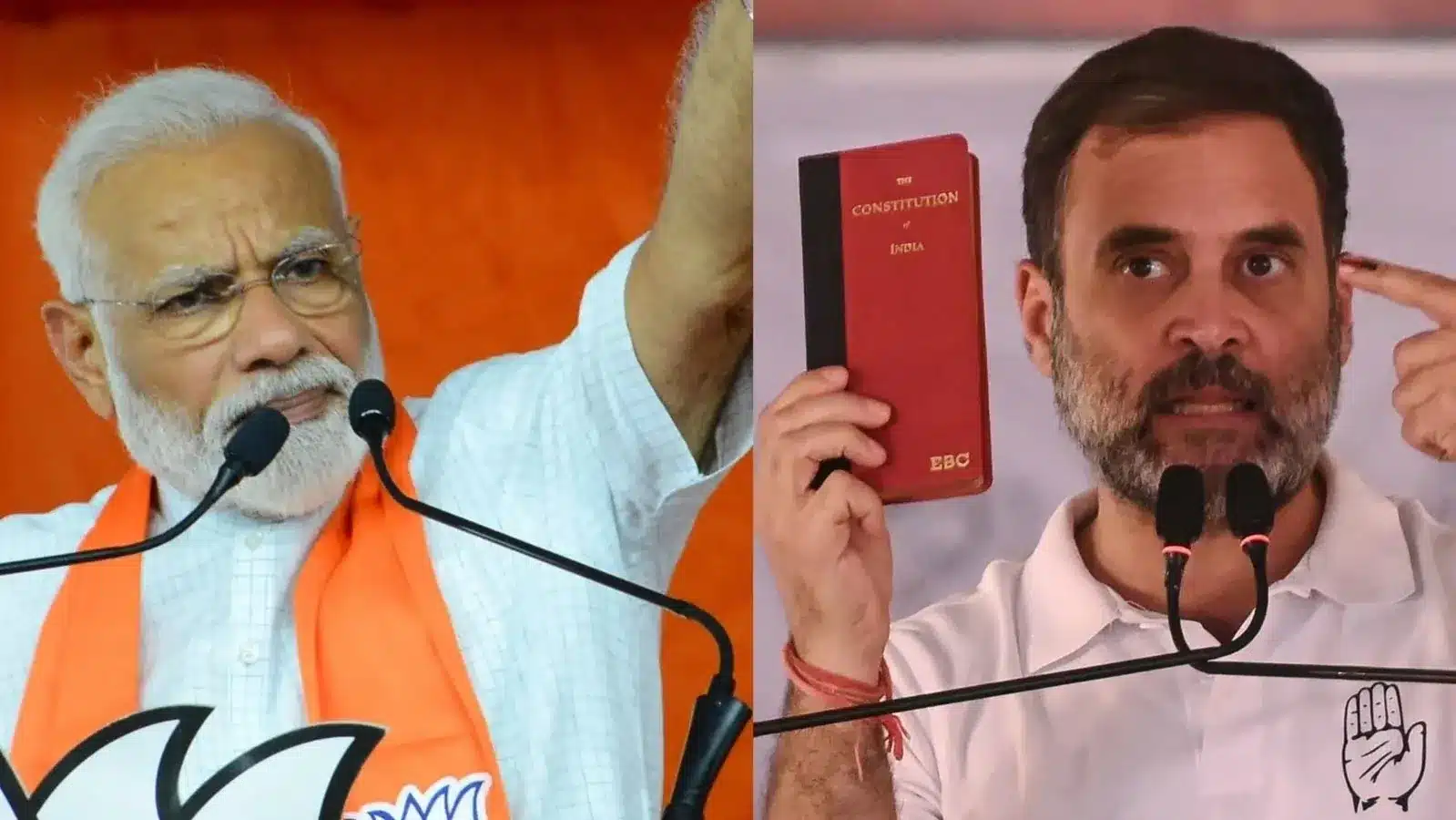What’s in today’s article?
- Why in News?
- Which Party Won How Many Seats
- Analysing the Lok Sabha Election Results 2024
- What will be the Changes on the Nature and Working of 18th Lok Sabha/ Other Institutions?
- Impact of Coalition Politics at the Centre
Why in News?
- The Bharatiya Janata Party-led NDA is set to form the government at the Centre for the third consecutive term.
- But what would usually be termed a clear victory, feels like a defeat for the BJP after the opposition INDIA bloc’s impressive performance in the elections for the 18th Lok Sabha.
Which Party Won How Many Seats:
- The BJP won in 240 seats (with a vote share of 36.56%), falling short of the 272-majority mark and less than the 303 and 282 seats it had won in 2019 and 2014, respectively.
- With support from key allies N Chandrababu Naidu’s Telugu Desam Party (TDP) and Nitish Kumar’s JD(U), which won 16 and 12 seats in Andhra Pradesh and Bihar, respectively, the NDA crossed the halfway mark.
- The Congress, which is part of the opposition INDIA bloc, won 99 seats (with a vote share of 21.19%) compared to 52 it won in 2019.
- The Samajwadi Party kept the INDIA bloc’s morale high in UP with 37 seats and the Trinamool Congress (TMC) won 29 seats in West Bengal, higher than its 2019 tally of 22.
- The BJP-led NDA had anticipated and the exit polls had predicted a landslide victory, but that was not what happened.
Analysing the Lok Sabha Election Results 2024:
- Return of Coalition politics at the Centre:
- In the last 10 years, a single political party (BJP) led a majority government at the Centre, crossing the halfway mark in the Lok Sabha elections of 2014 and 2019.
- Now, it will have to depend on its pre-poll allies, the top four being the TDP, JD(U), Shiv Sena led by Eknath Shinde, and LJP (Ram Vilas) led by Chirag Paswan.
- Rise of regional leaders and impact on regional politics:
- From the North to the South, East to West, regional leaders have re-emerged to exert influence in the national polity.
- The verdict in Maharashtra suggests that the people have stood by Sharad Pawar and Uddhav Thackeray, who suffered BJP-supported splits in their parties. The state goes to Assembly polls later this year in October.
- Recalibration of power balance, among BJP-RSS and within BJP:
- Given that the Lok Sabha elections in 2024 were centred around PM Narendra Modi, with a high-decibel ‘Modi ki guarantee’ campaign, the burden of a lower tally will inevitably fall on him.
- BJP-RSS relations during the NDA government under Atal Bihari Vajpayee and Narendra Modi had been starkly different.
- RSS, the ideological parent of the BJP, which works quietly on the ground for the party, may start participating in government affairs along with setting political agenda for BJP.
What will be the Changes on the Nature and Working of 18th Lok Sabha/ Other Institutions?
- The opposition benches will have a much larger voice:
- The lower numbers of the BJP will mean greater representation for Lok Sabha members from the opposition in various Parliamentary panels such as the Standing Committees and Select Committees.
- As speaking time on an issue is divided in proportion to the strength of parties in Lok Sabha, the INDIA bloc will be allotted almost 26 minutes for an hour for discussion on a particular issue.
- It will promote adequate debate and discussion on an issue in Lok Sabha and prevent routing of legislation as a Money Bill.
- Federalism will matter more: The opposition views the frequently used slogan “double-engine sarkar” to win support in state Assembly elections as an attack on federalism – a fundamental principle of the Constitution.
- Greater accountability:
- A coalition provides more room for institutions to innovate and resist the political executive’s top-down policies, improves checks and balances, and oxygenates the ecosystem.
- Hence, accountability is likely to increase in all institutions from the judiciary to the auditor, from financial regulators to the election watchdog, and even the investigative agencies.
Impact of Coalition Politics at the Centre:
- Dealing with partners:
- Now, BJP will have to listen to its allies, because they will be key to the stability of the government at the Centre.
- The new and old allies will seek Cabinet berths, which could impinge on the BJP-led government’s flexibility in policy-making especially on the issues such as
- Uniform Civil Code,
- Delimitation of constituencies,
- Judicial reforms, and
- One-Nation, One-Election
- In short, the party will have to devise mechanisms to accommodate the sensitivities of other parties with their own ethos and ideologies.
- Structural reforms:
- Coalitions have performed better when it comes to structural reforms, which have always required time for all parties involved to be convinced.
- For example, the BJP (over the last 10 years), despite enjoying an absolute majority in Lok Sabha,
- Failed to push through legislation on land and farms.
- The four labour codes passed by Parliament in 2019 and 2020 have remained on the back burner.
Q.1. What do you mean by the Coalition government?
A coalition government is a government where political parties enter a power-sharing arrangement of the executive. Coalition governments usually occur when no single party has achieved an absolute majority after an election.
Q.2. What is the significance of the exit polls?
Exit polls are an important feature of the electoral process in a democracy as they help gauge public opinion, provide important clues on which way the wind is blowing. The RPA 1951 stipulates that exit polls cannot be conducted or disseminated until the final phase of voting concludes.
Source: Lok Sabha election results 2024 explained: Why NDA’s victory feels like a defeat | ECI | IE
Last updated on June, 2025
→ UPSC Notification 2025 was released on 22nd January 2025.
→ UPSC Prelims Result 2025 is out now for the CSE held on 25 May 2025.
→ UPSC Prelims Question Paper 2025 and Unofficial Prelims Answer Key 2025 are available now.
→ UPSC Calendar 2026 is released on 15th May, 2025.
→ The UPSC Vacancy 2025 were released 1129, out of which 979 were for UPSC CSE and remaining 150 are for UPSC IFoS.
→ UPSC Mains 2025 will be conducted on 22nd August 2025.
→ UPSC Prelims 2026 will be conducted on 24th May, 2026 & UPSC Mains 2026 will be conducted on 21st August 2026.
→ The UPSC Selection Process is of 3 stages-Prelims, Mains and Interview.
→ UPSC Result 2024 is released with latest UPSC Marksheet 2024. Check Now!
→ UPSC Toppers List 2024 is released now. Shakti Dubey is UPSC AIR 1 2024 Topper.
→ Also check Best IAS Coaching in Delhi
























